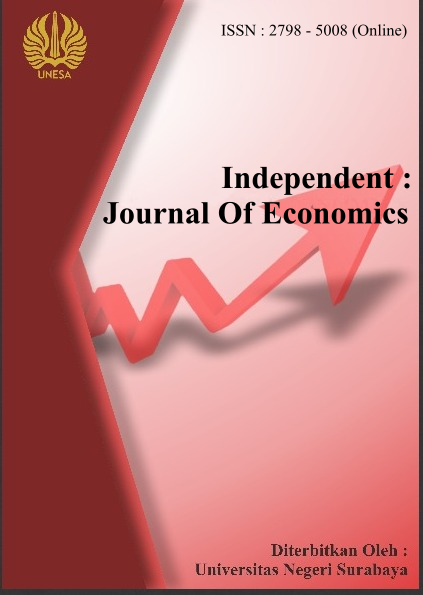Pengaruh Pengeluaran Pemerintah, Investasi dan Tenaga Kerja Terhadap Pertumbuhan Ekonomi Jawa Timur
DOI:
https://doi.org/10.26740/independent.v2i1.43626Keywords:
pengeluaran pemerintah, investasi, tenaga kerja, pertumbuhan ekonomiAbstract
In the process of sustainable economic development, several factors are supported, including government spending, investment and labor. The research carried out has the aim of understanding economic growth in East Java caused by government spending, investment and labor in 2011 to 2019. In the research conducted, the method used as an analytical tool is descriptive quantitative with a regression model. The research conducted shows the results, namely 1.) Government spending has a partial influence on economic growth in the province of East Java. 2.) Investment does not have a partial effect, but the regression coefficient is positive, which means that every investment that enters will indirectly have a positive impact on economic growth in East Java Province. 3.) Labor has a significant influence on economic growth partially. 4.) The value of the coefficient of determination is 0.918, which means that the influence of the three independent variables simultaneously contributes to economic growth of 91.8% and the remaining 8.2% is influenced by variables outside the equation model.
Downloads
References
Amalia, R., & Rahman Razak, A. (2015). The Effects of the Government Spending
on the Poverty in West Sulawesi Province. In Jurnal Analisis, Desember
(Vol. 4, Issue 2).
Arikunto, S. (2002). Prosedur Penelitian Suatu Pendekatan Praktek (Revisi V).
Rineka Cipta.
Downloads
Published
How to Cite
Issue
Section
 Abstract views: 296
,
Abstract views: 296
, PDF Downloads: 407
PDF Downloads: 407








